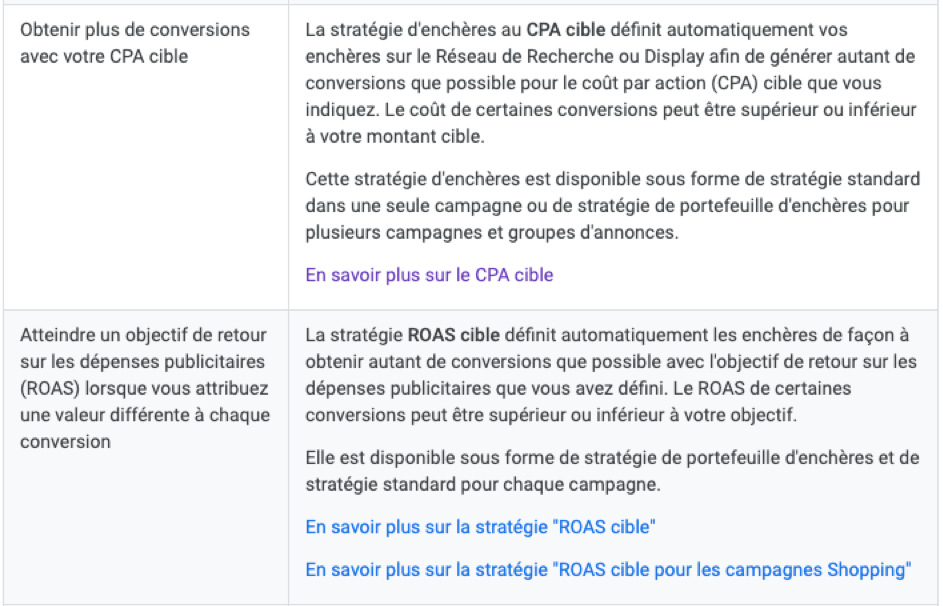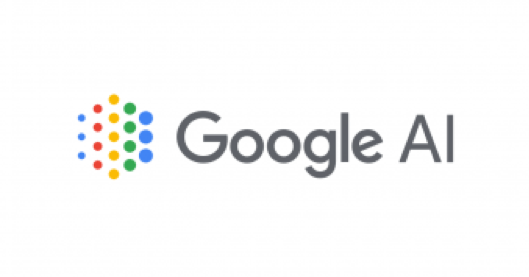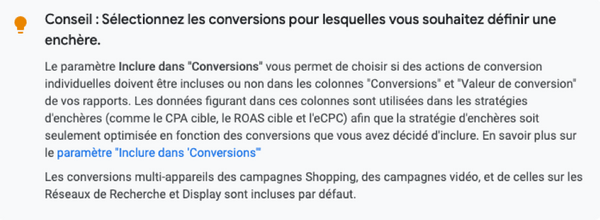You’ve discovered Smart Bidding and would like to launch a Google Ads campaign?
There are a few prerequisites you need to take into account: without data, machine learning can’t do much for you. So, if you’re not sure whether to launch an automatic bidding campaign with a ROAS or CPA target, it might be a good idea to read these few lines first.
Here are the definitions of these 2 indicators:
- CPA : “The average cost per action (CPA) is calculated by dividing the total cost of conversions by the total number of conversions.” This is very often the cost of your sale, or the cost of your new customer acquired via your Google Ads campaign.
- ROAS : “ROAS” stands for “Return On Ad Spent”, and refers to the return on investment of an advertising spend. If your ROAS is 10 or 1000%, then this means that for every €1 spent via Google Ads, you’ve generated €10 in sales.

ROAS or CPA: How to use your indicators?
Google Ads automatic bidding offers several strategies, as different as whether you want to improve your visibility or increase the number of visits to your site. Among Smart Bidding strategies, two tend to stand out:
- Achieve a target ROAS (return on ad spend):
Google Smart Bidding’s ROAS strategy aims to achieve as many conversions as possible based on a predefined ROAS target. This smart bidding strategy can be applied to a single campaign or to several. - Get more conversions with a target CPA (cost per action) at a controlled cost:
Smart Bidding’s target CPA strategy automatically defines your bids on the Search Network (also known as Display). The aim is to generate as many conversions as possible for the target CPA you set before launching your campaign.

Target ROAS or target CPA: what does Google have to say?
All automatic bidding strategies require a minimum number of conversions to work. In terms of ROAS and CPA, for example, Google recommends :
- Target ROAS: as soon as a campaign has more than 100 conversions over the last 30 days;
- Target CPA: as soon as a campaign has more than 30 conversions in the last 30 days.
The more historical conversion data you have, the more accurate Google’s algorithm will be.

Target CPA intelligent auctions, for whom?
The first thing you need to know is that using Smart Bidding with a target CPA strategy requires a thorough understanding of Google Ads. This implies that you’ve already launched several campaigns manually, and that you know the cost of a conversion.
What you want: to optimize the cost of your conversions.
What Google Smart Bidding will do: your campaigns will be adjusted automatically, which means that some acquisitions may cost you more, but in the end, your bids will be balanced.
The risk: not having enough historical data and not defining your target CPA correctly. The algorithm won’t help you at all.
Another “risk” is a lack of control over the products you want to sell first. This is a recurring problem we face with our customers and account managers. But you should know that we have solutions and methods to make the most of these “risks”.

Automatic auctions at target ROAS, in what context?
What you want: to optimize the profitability of your campaign.
What Google Smart Bidding will do: Google will automatically adjust your bids according to the target ROAS you’ve defined, in order to maximize the value of your conversions.
The risk: as we saw earlier, without sufficient data, you won’t get the results you want. In order for your campaign to be properly defined, you need to have gathered information and defined your average ROAS.
CONCLUSION
Target ROAS or target CPA: which to choose?
Because the ROAS target strategy remains complex to set up correctly (you need a lot of data), it’s advisable to start with a CPA target or a strategy aimed at maximizing your conversions.
Nevertheless, in the long term, especially if you have an e-commerce site, target ROAS probably remains the best solution for optimizing your campaign and above all your profits through machine learning.
Last but not least, bear in mind that while changes in the CPA ceiling may not necessarily influence Google’s algorithm, fluctuations in your market can have a very big impact on learning your target ROAS.



